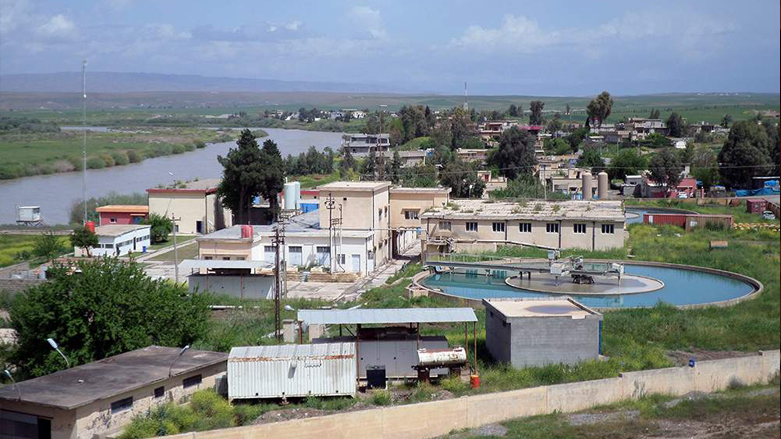Erbil eyes Saudi funds for a water treatment project, says governor
The Kurdish officials will lay out a proposal to the Saudi counterparts on the provincial plan to finish the Ifraz 3 project, a water treatment plant that sources drinking water from the Great Zab River to the capital’s residents.

ERBIL (Kurdistan 24) – An Erbil governorate delegation is set to visit Saudi Arabia this week to secure funds that would complete a treatment project in the Kurdish capital — aimed at providing potable water for the province's residents, Governor Omed Khoshnaw told Kurdistan 24 on Sunday.
In a bid to strengthen Erbil’s water security and tackle water scarcity, which batters the city during its scorching hot summers, the Kurdistan Region’s authorities are exploring possible ways to overcome the challenge, Khoshnaw told Kurdistan 24.
Governor Khoshnaw and his deputy along with the head of the water directorate will be part of the delegation that will meet with the monarchy’s relevant authorities on Tuesday, Deputy Erbil Governor Masoud Karash told Kurdistan 24.
The Kurdish officials will lay out a proposal to their Saudi counterparts on the provincial plan to finish the Ifraz 3 project, a water treatment plant that sources drinking water from the Great Zab River to the capital’s residents, Karash said.
Karash added that Erbil seeks to take a "loan” from the Saudi government to implement the project, which upon its completion, will provide 25,000 cubic meters of fresh water to the capital.
Through implementing the project, Erbil aims to completely remove reliance on groundwater to supply the city’s residents, he added, warning groundwater depletion has reached a “dangerous level” in the province’s south.
Last week, Erbil declared drought across the province for the second year in a row, triggering an emergency budget approval by the Kurdistan Region Prime Minister Masrour Barzani to address the chronic issue.
The regional capital’s cities, towns, and neighborhoods rely on wells inside the province and water treatment plants on the Greater Zab River to access clean water for both household use and irrigation.
Erbil already has three treatment plants on the basin, commonly known as Ifraz 1, Ifraz 2, and Ifraz 3, which combined provide about 60 percent of the local supply. To lessen the strain on the existing ones, Erbil has a plan to build and expand its Ifraz 3 water treatment plant.
Exacerbated by climate change, drought has impacted many parts of Iraq and the Kurdistan Region in recent years.
Iraq is ranked by the United Nations as the fifth most vulnerable country in the world to the adverse effects of climate change. Thousands have already been displaced, particularly in the southern parts, by drought, desertification, and increased salinity in the rivers.
The KRG has built a number of dams in the region to bolster its water security.
Prime Minister Barzani in late June laid the foundation of Bastora Dam as part of the government's efforts to strengthen water security and boost agricultural and tourism sectors in Erbil.